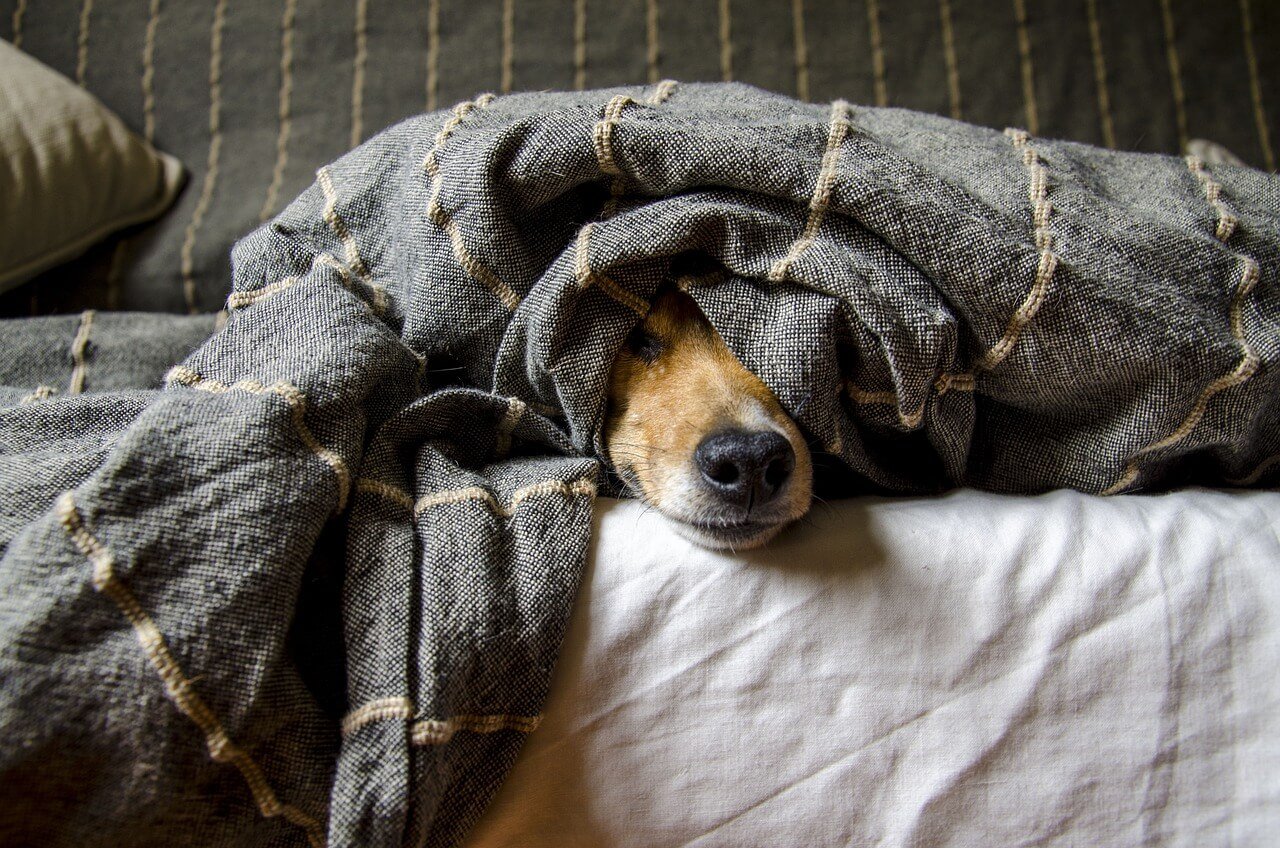Understanding Dog Butt Glands: A Key to Your Pet’s Health
If you’re a dog owner, you’ve likely heard about “dog butt glands” or “anal glands,” but what exactly are they? These small sacs located on either side of your dog’s anus play an important role in their health and communication. While many dogs naturally express their anal glands during bowel movements, some may experience issues that require intervention. Understanding how these glands function, recognizing potential problems, and learning how to care for them can help ensure your furry friend stays comfortable and happy. Let’s dive into everything you need to know about dog butt glands and how to keep them in tip-top shape.
What Are Dog Butt Glands and How Do They Work?
Dog butt glands, also known as anal sacs, are small pouches located near the rectum. These glands produce a smelly fluid that dogs use for marking territory and communicating with other animals. Here’s a closer look at their anatomy and function:
Location of the Glands:
The anal glands are situated at approximately the 4 o’clock and 8 o’clock positions around the anus.Purpose of the Secretions:
The fluid inside the glands contains unique scents that help dogs identify each other and mark their territory.Natural Expression During Defecation:
When a dog poops, the pressure from the stool naturally squeezes the glands, releasing the fluid.Role in Canine Communication:
Dogs often sniff each other’s rear ends to gather information from these scent markers.Potential for Blockages or Infections:
If the glands don’t empty properly, they can become impacted, infected, or even abscessed, leading to discomfort.
Understanding the basics of how dog butt glands function is the first step toward recognizing when something might be wrong.

Signs Your Dog May Have Anal Gland Issues
It’s important to monitor your dog for signs of anal gland problems, as untreated issues can lead to pain or infection. Here are some common symptoms to watch for:
Scooting Behavior:
Dogs may drag their bottoms across the floor in an attempt to relieve irritation caused by full or inflamed glands.Excessive Licking or Biting:
Persistent licking or biting around the anal area can indicate discomfort or infection.Foul Odor:
A strong, fishy smell emanating from your dog’s rear end is often a sign of leaking or impacted anal glands.Swelling or Redness:
Visible swelling or redness near the anus may suggest an infection or abscess.Difficulty Defecating:
Painful or impacted glands can make bowel movements uncomfortable for your dog.
Recognizing these signs early allows you to address potential issues promptly and prevent further complications.
Check this guide 👉Anal Gland Cancer in Dogs: Best 7 Expert Tips!
Check this guide 👉How to Tell if a Dogs Anal Glands Are Full: Best 7 Tips!
Check this guide 👉Diet for Healthy Anal Gland Expression in Dogs: Best 7 Tips!
Preventive Care for Dog Butt Glands | Common Treatments for Anal Gland Issues |
|---|---|
Regular vet check-ups | Manual expression by a veterinarian |
High-fiber diet to promote firm stools | Antibiotics for infections |
Providing adequate exercise | Warm compresses for inflammation |
Monitoring scooting behavior | Surgical removal in severe cases |
Keeping the anal area clean | Anti-inflammatory medications |
How to Care for Your Dog’s Anal Glands at Home
While professional veterinary care is essential for serious issues, there are steps you can take at home to support your dog’s anal gland health. Here’s how to get started:
Observe Your Dog’s Behavior:
Pay attention to any unusual behaviors like scooting, licking, or signs of discomfort around the anus.Feed a Balanced Diet:
A high-fiber diet can help produce firmer stools, which naturally aids in expressing the glands during defecation.Maintain Good Hygiene:
Clean your dog’s anal area gently with a damp cloth if it becomes dirty or irritated.Schedule Routine Vet Visits:
Regular check-ups allow your vet to assess the condition of your dog’s anal glands and address minor issues before they worsen.Avoid Over-Expressing the Glands Yourself:
Frequent manual expression without proper training can damage the glands, so leave this task to professionals unless instructed otherwise.
By incorporating these practices into your routine, you can help prevent anal gland problems and keep your dog comfortable.
When to Seek Veterinary Help for Dog Butt Glands
While mild issues can sometimes be managed at home, certain situations require immediate veterinary attention. Knowing when to consult a professional ensures your dog receives timely care.
Persistent Scooting Despite Cleaning:
If your dog continues to scoot despite hygiene efforts, it could indicate impacted or infected glands.Visible Abscesses or Pus:
Swollen areas or discharge near the anus should never be ignored, as they may signal an advanced infection.Changes in Bowel Movements:
Diarrhea or straining during defecation can exacerbate anal gland issues and warrants a vet visit.Unexplained Weight Loss or Lethargy:
These symptoms paired with anal gland problems may point to underlying health concerns.Recurrent Issues Over Time:
Frequent anal gland problems may require long-term management strategies or surgical intervention.
Prompt veterinary care is crucial for addressing severe or recurring issues and ensuring your dog’s well-being.
Preventive Measures for Healthy Anal Glands
Prevention is always better than cure when it comes to dog butt glands. Taking proactive steps can significantly reduce the risk of problems developing.
Provide Plenty of Exercise:
Physical activity stimulates bowel movements, which helps naturally express the glands.Incorporate Fiber-Rich Foods:
Adding pumpkin or sweet potato to your dog’s diet promotes firmer stools that aid in gland expression.Monitor Weight Levels:
Obesity can put extra pressure on the anal glands, so maintaining a healthy weight is key.Encourage Natural Behaviors:
Allowing your dog to sniff and explore outdoors supports their natural instincts and reduces stress-related issues.Regularly Inspect the Anal Area:
Quick checks during grooming sessions can help catch early signs of irritation or swelling.
By focusing on prevention, you can minimize the likelihood of anal gland issues arising in the first place.
Preventive Measures for Healthy Anal Glands
Prevention is always better than cure when it comes to dog butt glands. Taking proactive steps can significantly reduce the risk of problems developing.
Provide Plenty of Exercise:
Physical activity stimulates bowel movements, which helps naturally express the glands.Incorporate Fiber-Rich Foods:
Adding pumpkin or sweet potato to your dog’s diet promotes firmer stools that aid in gland expression.Monitor Weight Levels:
Obesity can put extra pressure on the anal glands, so maintaining a healthy weight is key.Encourage Natural Behaviors:
Allowing your dog to sniff and explore outdoors supports their natural instincts and reduces stress-related issues.Regularly Inspect the Anal Area:
Quick checks during grooming sessions can help catch early signs of irritation or swelling.
By focusing on prevention, you can minimize the likelihood of anal gland issues arising in the first place.
Tips for Choosing the Right Vet
Finding a knowledgeable and compassionate veterinarian is essential for addressing dog butt gland issues effectively. Consider these tips when selecting a vet:
Look for Experience with Anal Gland Problems:
Choose a vet who has handled similar cases and understands the nuances of treatment.Ask About Their Approach to Gland Care:
Some vets prefer conservative methods, while others may recommend surgery sooner—find one aligned with your preferences.Check Reviews and Recommendations:
Online reviews and word-of-mouth referrals can highlight a vet’s reputation for quality care.Evaluate Communication Style:
A good vet explains conditions and treatments clearly, ensuring you feel confident in their recommendations.Consider Proximity and Availability:
Having a conveniently located vet makes follow-up visits easier, especially for chronic conditions.
Selecting the right vet ensures your dog receives the best possible care for their anal gland needs.
Frequently Asked Questions About Dog Butt Glands
What are dog butt glands, and why are they important?
Dog butt glands, or anal glands, are small sacs that produce a scent used for communication and marking territory. They’re vital for a dog’s natural behaviors but can cause issues if they don’t function properly.
How do I know if my dog’s butt glands are impacted?
Signs include scooting, excessive licking, foul odors, or visible swelling around the anus.
Can I express my dog’s glands at home?
Yes, but it’s best to learn the proper technique from a vet to avoid causing harm.
What causes anal gland problems in dogs?
Factors include poor diet, obesity, allergies, or genetic predispositions.
How often should I check my dog’s glands?
Regular checks during grooming sessions are ideal, but consult your vet for personalized advice.
Prioritizing Your Dog’s Anal Gland Health
Caring for your dog’s anal glands is an essential part of overall pet wellness. By staying informed about their function, recognizing warning signs, and taking proactive steps to maintain their health, you can prevent discomfort and avoid potentially serious complications. Whether through dietary adjustments, regular monitoring, or professional veterinary care, prioritizing your dog’s anal gland health ensures they remain happy, active, and free from unnecessary pain. Remember, a little attention goes a long way in keeping your furry companion thriving!
Do Cats Have Taste Buds? Best 7 Expert Tips! – Discover how cats experience flavors and why their taste is so unique.
Do Dogs Have Taste Buds? Best 7 Expert Tips! – Discover how dogs experience taste, their preferences, and what it means for their diet and health.
Can Cats Taste Sweet? Best 7 Expert Tips! – Discover why cats can’t taste sweetness, how it affects their diet, and tips to keep them healthy and happy.
Can Dogs Taste Sweet? Best 7 Expert Tips! – Discover how dogs perceive sweetness, which foods are safe, and tips to manage their sweet cravings responsibly.





